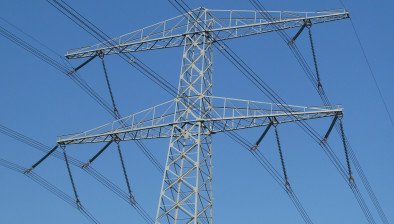Property tax cut must be matched in Scotland ‘to prevent market collapse’

David Alexander
The cut to stamp duty land tax (SDLT) announced by Chancellor Rishi Sunak must be matched in Scotland to avoid a housing market collapse, according to property firm apropos.
Yesterday Mr Sunak announced plans for a stamp duty cut in England until the end of March 2021. It will see all house sales benefit from an extension of the nil rate band to £500,000.
The firm believes that cutting the SDLT in England and Northern Ireland without a comparable reduction in land and buildings transaction tax would lead to a two-tier market which unfairly penalises Scottish homebuyers.
David Alexander, joint managing director of apropos, said: “The Chancellor’s proposed cut to SDLT is a welcome boost to the housing market and will provide an immediate boost in confidence for buyers. Scotland must follow suit if we are to face a level playing field and encourage homebuyers to continue to engage with the market during these difficult economic times.
“The existing tax discrepancy which exists between Scotland and the rest of the UK – where first time buyers in England pay no SDLT on purchases below £300,000 - is problematic at the best of times but, just now, when we are facing uncertain times we need to be sure that the Scottish market is able to compete with its near neighbours on an equal footing. The expected SDLT cut will ensure that those currently thinking of moving house will continue to do so in the coming months providing a much needed immediate boost.”
He added: “While the housing market has been quite buoyant in this initial period following the easing of lockdown it is clear that this mood may not be sustained if we start to experience widespread job losses. Maintaining the momentum of the property market is crucial in the months ahead to reduce the likelihood of a collapse.
“Anything which can be done to sustain the property market will, inevitably, keep it buoyant until a clearer picture emerges of the economic outlook in the coming months and years. It is, therefore, essential that all of the UK countries move at the same pace and with the same tax benefits to encourage growth. It is also important to encourage investors and landlords to continue to buy properties in Scotland, and the rest of the UK, to maintain the private rented sector in the coming years.
“A strong, viable, property market is essential to ensure the economy rebounds in the coming year. Scotland must be able to compete equally across the UK in the future growth of the economy and I hope the Scottish Government responds quickly, and effectively to unify the property tax levies. They must act to ensure Scotland emerges from this period of economic uncertainty as strong as their counterparts in the rest of the UK.”
The Chartered Institute of Taxation (CIOT) suggested that replicating Mr Sunak’s plans could result in more than 90% of Scottish house sales being tax free but could drastically cut Land and Buildings Transaction Tax (LBTT) receipts.
The CIOT said that while a cut in LBTT would lower the amount of tax that is collected by the Scottish Government, if the UK Government raises less stamp duty than originally forecast, this could increase the amount of money available to Holyrood as a result of lower block grant adjustments.
Joanne Walker, CIOT Scottish technical officer, said: “If the Scottish Government increased the threshold for LBTT to £500,000 it would have the effect of taking the vast majority of currently taxable house sales in Scotland out of LBTT altogether, resulting in a significant reduction in LBTT receipts.
“In a normal year, around 45% of house sales in Scotland aren’t liable for LBTT. Increasing the threshold to £500,000 would double this by taking over 90% of house sales out of LBTT altogether.
“We would also see a proportion of the 9% or so of transactions worth between £325,001 and £750,000 being taken out of the 10% LBTT rate. Those types of sales alone contributed around 55% of all residential LBTT that was paid in Scotland in 2019/20 and represent a significant proportion of all LBTT paid.
“Based on the most recent Registers of Scotland data on the average house price in Scotland, a sale of this kind would generate a LBTT liability of £690.
“It is uncertain who would gain from a change of this kind. A 2011 UK government study found that a previous cut to help first-time buyers was mostly absorbed in a higher house price, benefiting sellers rather than purchasers.”
The UK Government also released ’A Plan for Jobs 2020’ paper outlining the next steps for the recovery from the coronavirus pandemic, including a £2 billion fund to support homeowners and landlords in making their homes more energy efficient.
Mactaggart & Mickel Group CEO Ed Monaghan said: “We welcome the Chancellor’s recognition of the vital role that housebuilding and construction play in sustaining the economy.
“We are ready to support the government’s aim to build a better, more sustainable future. Measures like the Stamp Duty cut will be a significant boost for the housing market in England. We hope these measures will be matched in Scotland.
“We also welcome any measures to keep people employed and help them back into work. As the economy starts to re-open, any measures to sustain the construction industry and help people into work will be a crucial part of the recovery.
“We look forward to continuing to work with our partners and customers to ensure we support the changes that people rightly want to see.”
Claire Mack, chief executive at Scottish Renewables, added: “We welcome the measures announced today by the Chancellor to improve the energy performance of our buildings which will support the adoption of low-carbon heating technology.
“This investment follows the principles that are integral to a green economic recovery and is a welcome step towards reviving our economy which also helps to accelerate our progress towards net-zero.
“Ending the UK’s contribution to climate change by 2050 is a major challenge and the decarbonisation of heat will be key to achieving this.
“We look forward to further announcements from the UK Government to build on the initiatives announced today, and to understand how they will work with the Scottish Government to support a green economic recovery.”









